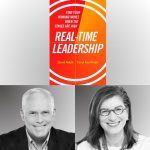Podcast Themes
Multiple perspectives on a topic that you are curious about!
Ricardo speaks about how intentional breathing can help us connect with our senses and our body. He goes on to talk about the Wim-hof method, one of the breathing techniques he recommends.
Ricardo speaks about how we all can do the quest and connect to ourselves by being in nature and without noise or disturbance and allowing for the essence in unconsciousness to be able to surface.
Ricardo speaks about tuning into the spiritual elements within us. He says that when you are able to connect from that place and you can speak from your truth, then you start to become coherent and there starts to become coherence between your head, your heart, and yourself, and your essence.
Ricardo speaks about how we can tune into the emotions that are within us with the help of our body.
Ricardo speaks about the 7 levels of energy we could all tap into (physical, emotional and spiritual) for us to access the “power plant” inside us that has unlimited energy.

Jennifer refers to the legendary “I have a dream” speech from Martin Luther King and speak about the criticality of engaging our various senses in the way we see a situation. She urges us to imagine a future that we can describe with our various senses.

Jen speaks about how we all need to be cognizant of the values of the person we are dealing with. She goes on to categorize the values on the other side as ideal values and shadow values. Ideal values are those that are visible and those that the person is willing to acknowledge. Shadow values often are those that are hidden below the surface and the person may not publicly acknowledge those.

Carol and David speak about 3 different dimensions of Mindfulness that leaders need in every context. They suggest that we are attuned to what is going on around us, inside us, and with others, and respond in an agile and an appropriate manner.

Stephen speaks about how we can tune into micro-moments where we get a glimpse of what somebody might be capable of. He says that if we don’t look for it, we will never find it. He goes on to talk about the four steps involved in unlocking the potential of the person – See, Communicate, Develop, Unleash.

Michiel speaks about the different levels of Self-Awareness and speaks about how we can slowly move up the ladder. 1) Bliss or Ignorance 2) Delayed Awareness. 3) Perceptive 4) Resilient 5) Adaptive. He speaks about the timing of when things come to our attention and our ability to regulate ourselves.

Jeffrey speaks about how, when people become more powerful, they stop getting meaningful feedback given the power dynamic. He also speaks about how we all need to get out of own way by reminding ourselves behind the “Why” behind accumulating greater Power.

David speaks about how critical it is for us to tune into what we are feeling at various points in the day. Not just for the surges in emotions but the mild emotions that are often humming in us through our day that we may not be present to.